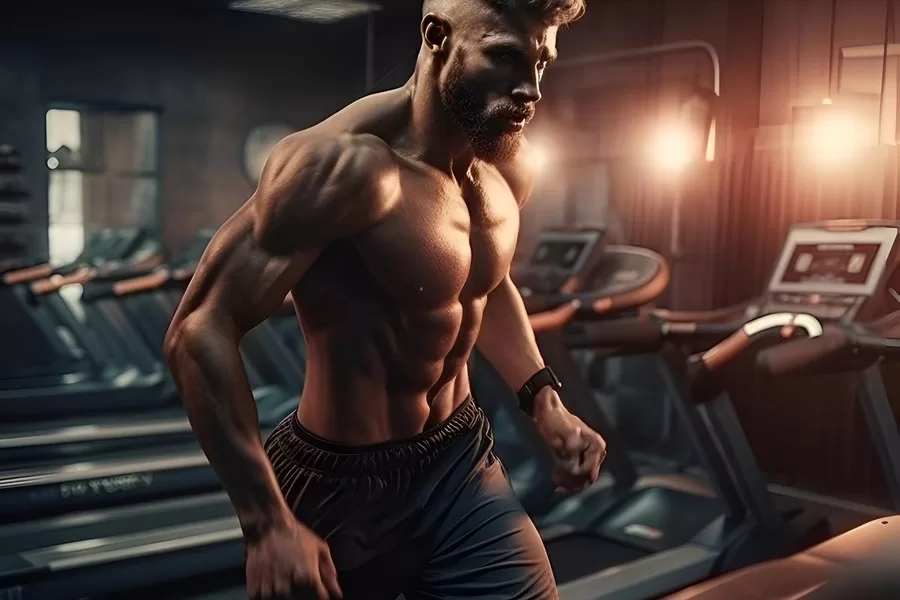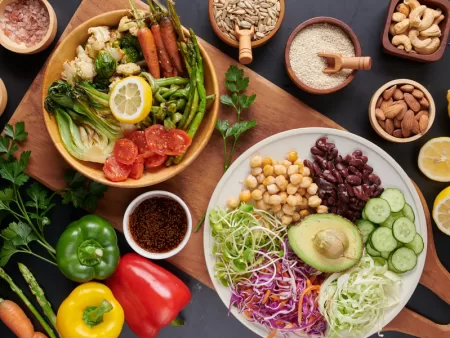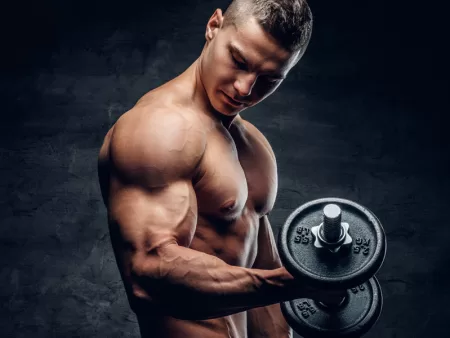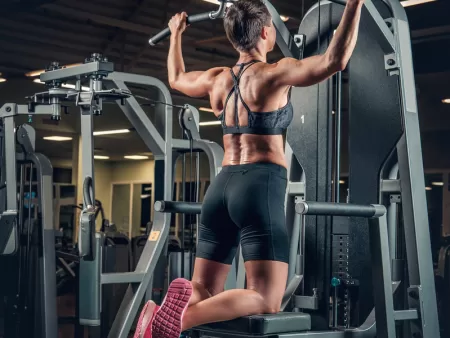
Are you looking to reshape your body? Although the road to muscle building and fat loss might be difficult, it is undoubtedly attainable with the appropriate strategy.
Understanding Body Recomposition
The Basics of Gaining Muscle and Losing Fat
When we talk about changing your body, it’s about two main things: getting more muscle and less fat. This isn’t something that happens overnight.
- Working on Muscles: Building muscle means doing activities that challenge your muscles. This could be lifting weights or doing body-weight exercises like squats or push-ups. When your muscles work hard, they grow and become stronger. But it’s not just about exercise. Eating right, especially foods with protein, helps your muscles grow too.What to Eat to Gain Muscle
- Reducing Fat: To lose fat, your body needs to burn more energy than the food you eat. This means eating healthy but not too much. It also means doing things like walking, running, cycling, or any activity that gets your heart rate up. This helps burn calories and reduces fat.
Goals That Make Sense for You
Setting goals is important, but they need to be goals that you can really achieve. You might see fast changes in others or on TV, but everyone’s body is different. It’s better to go slow and steady rather than expect quick results.
- One Step at a Time: Think about small changes you can make every day or every week. Maybe lift a little more, run a bit further, or choose healthier food. It’s about building habits that you can keep doing for a long time.
- Consistency is Key: Changes in your body take time. Being consistent, doing a bit every day, is what really leads to success. Even on days when it feels tough, sticking to your routine is important.
Learning about how to gain muscle and lose fat, and setting realistic goals, is the start of your fitness journey. It’s about making small, steady changes that will help you feel better and healthier in the long run.
Nutrition
Protein Intake
Protein is like a superhero for your muscles. It helps them grow and get stronger. To give your muscles what they need, add some lean proteins to your meals. What are these? Well, they’re foods like chicken, fish, tofu (a great plant-based option), and legumes (like beans and lentils). They’re super good for building those muscles without adding unwanted fats.
Balanced Diet
Protein is super important, but it’s not the only thing your body needs. Carbohydrates (or carbs, for short) are the energy providers. They give you the fuel to move, exercise, and be active. Healthy Fats – Take care of important things in your body, like making sure your hormones are working properly.
Caloric Deficit with Nutrient Density
To lose fat, you need to use up more energy than you eat. This is called a ‘caloric deficit’. But, it’s not about just eating less. It’s about eating smart. Choose foods that are full of nutrients. So, even when you’re eating fewer calories, make sure they’re from foods that are really good for you.
Remember, it’s all about balance and making choices that are good for your body. You don’t have to be perfect all the time, just aim to make better choices more often. Your body will thank you with lots of energy and a happier, healthier you. Happy eating!
Exercise Tips
Exercising the right way is just as important as eating right when you’re working on your fitness. Here are some exercise tips that can help you build muscle, lose fat, and stay healthy.
Strength Training
Strength training is all about building muscle. Focus on exercises that work several muscle groups at once. These are called compound exercises. Squats, deadlifts, and bench presses are great examples. They’re like multitasking for your muscles, working out more than one area at a time. This helps you build muscle faster and more efficiently.
Consistency and Variation
Sticking to a regular workout routine is important. But, just doing the same thing over and over can get boring, and your muscles might stop growing. That’s why you need to change your routine every few weeks. Try new exercises or change the number of reps and sets you do. This keeps things interesting for you and your muscles, helping avoid plateaus where you stop seeing progress.
Cardio for Fat Loss
Cardio exercise is great for burning fat. This includes activities like running, cycling, or swimming. But, it’s important not to go overboard. Too much cardio can actually start to break down muscle, which you don’t want. Aim for a balance – enough cardio to burn fat but not so much that you lose the muscle you’ve worked hard to build.
By combining strength training, consistent and varied workouts, and balanced cardio, you can create an effective exercise routine that helps you build muscle and lose fat. Remember, the key to fitness is finding the right balance that works for your body and sticking with it.
Lifestyle Adjustments
When you’re working on getting fit, what you do outside the gym is just as important as your workouts. Here are some key lifestyle adjustments that can help you reach your fitness goals.
Adequate Sleep
Getting enough sleep is super important for your health and fitness. Aim for 7-9 hours each night. Think of sleep as your body’s time to repair itself. When you’re asleep, your muscles recover and grow from the workouts you’ve done. Good sleep also helps regulate your hunger hormones, which can help with weight management. Try to make your bedroom a calm and quiet place, and stick to a regular sleep schedule.
Stress Management
Too much stress can actually make it harder to lose weight. It can lead to fat gain, especially around your belly. Managing stress is really important for your fitness journey. Activities like yoga, meditation, or even just taking a peaceful walk can help reduce stress. They’re like a mental workout for your brain. Managing stress isn’t just good for your body, but it’s also great for your mind. It can help you stay focused and motivated.
Hydration
Drinking enough water is essential for your health. Aim for at least 8 glasses a day, but you might need more if you’re exercising a lot or if it’s hot. Water helps with pretty much everything in your body, including muscle function and recovery. Carrying a water bottle with you can help you remember to drink throughout the day. Remember, if you’re feeling thirsty, you’re already starting to get dehydrated.
By focusing on these lifestyle adjustments, you can support your fitness goals even when you’re not at the gym. Good sleep, stress management, and staying hydrated are key pieces of the puzzle for a healthy body and mind.
Supplements for athletes
They’re not a replacement for your delicious, healthy meals but more like a high-five to your diet. They help fill in those little gaps and give you a boost in energy, muscle recovery, and overall awesomeness.
Protein Powders
Protein powders are like the faithful sidekicks to your muscles. After you smash your workout, they’re there to help your muscles chill out and grow. Whether it’s a quick shake or a sneaky addition to your pancake mix, protein powders are a super convenient way to keep your muscles happy.
Creatine
Need a quick energy boost for those sprints or heavy lifts? Creatine is like your personal energy rocket. It gives your muscles that extra push, helping you to train harder and faster.
BCAAs
Feeling a bit sore after training? Say hello to BCAAs – your muscle comforters. They jump into action to soothe your tired muscles, helping them recover faster.
Omega-3s
Omega-3s are not just good for your heart. They help keep your muscles and joints feeling great, which is super important when you’re always on the move. Plus, they’re champions at reducing inflammation, keeping you in tip-top shape.
Vitamins & Minerals
Vitamins and minerals are the dynamic duo of your body’s health. They keep everything running smoothly – from giving you strong bones to powering your muscles. Sometimes you need more of these than your food can provide, and that’s where supplements swing into action.
Electrolytes
Electrolytes are the masters of hydration. When you sweat, you’re not just losing water; you’re also losing these important minerals. They help keep your body’s water levels just right and your muscles working. Electrolyte supplements are a big win, especially during those long training sessions or hot days.
Building Muscles Through Various Exercises
Stretching
Think of stretching as the prep work for building muscles. It makes your muscles more flexible, which means they can move better and do more during workouts. Stretching helps muscles to not get too tight and this is good because tight muscles can get hurt more easily. After you work out, stretching is like a cool-down for your muscles, helping them to relax and get ready to build stronger.
Pilates
Pilates is like a workout that makes all your muscles work together. It’s really good for your core muscles – the ones in your belly and back. But it’s not just about your core. Pilates helps your whole body to move better and become stronger. It’s about doing each exercise in a controlled way, which helps to build muscle all over your body, not just in one place.
Cardio
Cardio exercises like running, swimming, or biking do more than just make your heart strong. They help your muscles too. When you do cardio, lots of different muscles are working. Over time, this helps them get stronger and better at using energy. Cardio also helps more blood and oxygen get to your muscles, which they need to grow.
Other Sports
Playing sports is a fun way to build muscle. Different sports make you move in different ways. You can run, jump, or quickly change direction, which exercises more of your body. Each sport has its own way of forcing the body to work harder, which helps the muscles become stronger and more toned.
Whether it’s stretching, Pilates, cardio or sports, these activities are all great for building muscle. Each of them helps your body in its own way, but all of them together can make you stronger and give you a more toned body.
Conclusion
Transforming physique entails a focused program for fat loss and muscular growth reduction. Crucial dietary balance: Prioritize protein for muscle repair, combine with energy-giving carbs, and adhere to a nutrient-rich, controlled-calorie diet. Employ a mix of varied strength training and strategic cardio for effective muscle growth and fat loss. Optimal fitness relies on key lifestyle practices: restorative sleep, managing stress effectively, and maintaining hydration. Supplemental aids like protein powders and essential nutrients can enhance workout outcomes and recovery efficiency.
FAQs
Include a variety of foods: lean proteins for muscle repair, carbs for energy, and don’t forget fruits and veggies for nutrients.
Yes, a combination of cardio and weight training can boost overall fitness and aid in effective muscle building.
Set realistic goals, create a routine you enjoy, and remember, gradual changes often lead to long-term success.
Very! Good sleep is key for muscle recovery. Aim for 7-9 hours per night to support your fitness journey.
Yes, a well-balanced diet can meet most of your muscle-building needs, though supplements can be helpful in some cases.







